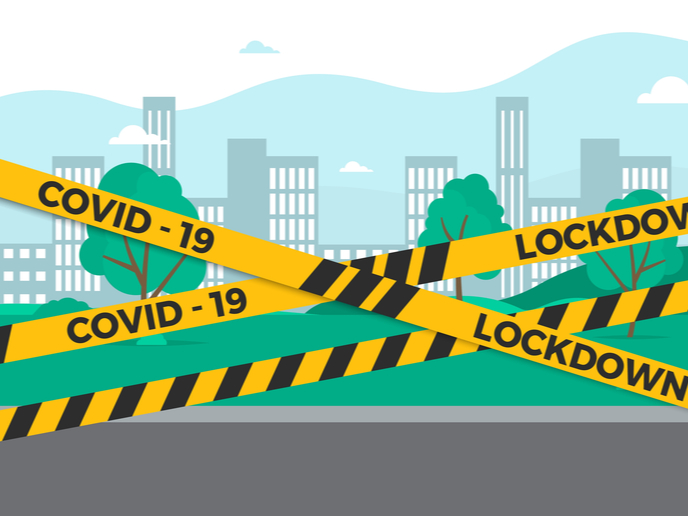
Latest Data from COVID Symptom Tracker App Shows the Lockdown Is Working
The latest analysis of data from the COVID Symptom Tracker app, used by over 2 million people, shows the rate of new symptoms being reported nationally has slowed down significantly in the past few days. The latest figures estimate that 1.4 million people in the UK aged 20-69 have symptomatic COVID, a fall from 1.9 million on the 1st April.
These figures suggest that the nation staying home is having a big impact on the spread of the virus in the UK. The drop in new symptoms indicates that although the number of hospital admissions and deaths from COVID are currently rising, they should start to fall in about two weeks provided social distancing continues. This two week lag is caused by the delay between symptoms starting and becoming very severe.
This data from millions of people lines up with what has been reported by NHS digital based on much smaller numbers. They show a decline in the number of calls to NHS 111 with COVID since the 22nd March.
While symptoms have been decreasing nationally, in all areas there are still many people with active symptoms of COVID. Therefore, this data supports both the success of lockdown, and the importance of maintaining it. It also shows that individual areas vary. Most of the country’s larger cities like London, Birmingham, Glasgow, and Liverpool continue to have very high levels of symptoms in the community, even this far into lockdown. Other hotspots include South Wales. There are significantly higher levels of symptoms across the Midlands, the North of England and Southern Scotland than in the South West of England.
Lead researcher Professor Tim Spector said:
“It is really encouraging to see that the rate of new symptoms being reported is beginning to fall. Even though hospital admissions and deaths are still on the rise, we hope that these figures offer a much needed light at the end of the tunnel.
We have been totally blown away by the public’s response to the app. On the first day we saw one million members of the public download the app making it one of the most successful first days for an app ever, and already probably the UK’s largest citizen science project. The altruism of the UK public combined with modern technology is allowing us to rapidly collect huge amounts of invaluable data to help us better understand this deadly virus.
We would like to take this opportunity to thank every single person who is already participating and would urge everyone else to download the app and check in every day, whether you are experiencing any symptoms or feeling fine.”
Developed by researchers at King’s College London and healthcare science company, ZOE, the COVID Symptom Tracker has been used to log symptoms by over 2 million people across the UK, with over 10 million individual reports so far. Members of the public are using the app to track their daily health whether they are healthy or showing potential COVID symptoms. It is also being used by healthcare and hospital workers nationwide so their increased risk can be recorded.
The research team at King’s College London and ZOE are working round the clock to analyse the data to generate new insights about the disease and its progression. For example, they have discovered that loss of smell or taste is more predictive of COVID in the population than the classical symptoms of fever and cough. An interactive map allowing anyone to see the distribution of COVID in their area is available at covid.joinzoe.com as well as frequent science updates.
The researchers have developed a statistical model which analyses millions of COVID Symptom Tracker data points, including thousands of people who have had tests for COVID, in order to predict which combination of symptoms indicate someone is likely to test positive for COVID. This model is then applied to the UK population aged 20-69 and then mapped to the regions of the country accounting for age and gender differences to provide maps over time. The most predictive individual symptoms, in order of importance were: lack of taste & smell, fatigue, shortness of breath, fever and persistent cough. The model estimates that 3.5% of these app users would be positive if tested. As contributors continue to share symptoms, and we link it to other health records, the model will become more accurate and sophisticated.
The app is available to download from the Apple App Store and Google Play from the links at covid.joinzoe.com.
